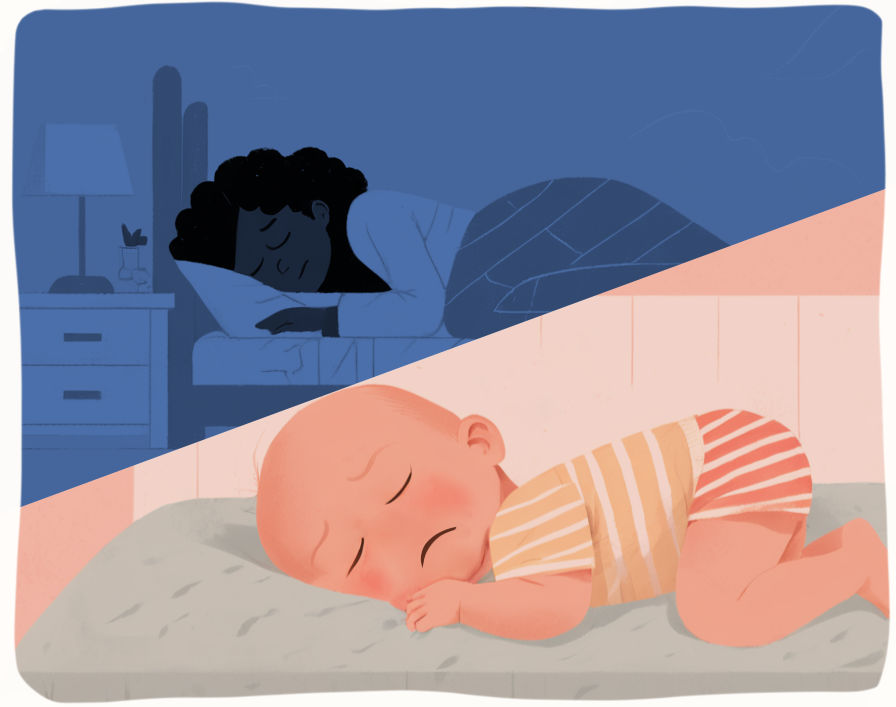Baby won’t sleep at night? Learn why night waking is normal, how baby sleep cycles work, and gentle ways to help everyone get more rest.

It’s 2 a.m. The house is quiet, except for your wide-awake baby. You’ve fed, changed, rocked, and sung every lullaby you know. And still… no sleep.
If you’re exhausted and wondering “Is this normal?”, well… you’re not alone. Night waking is one of the most common concerns for new parents, and the good news is: in most cases, it’s completely normal!
Newborns have shorter sleep cycles (about 45-60 minutes) compared to adults (90 minutes). They spend more time in active sleep (light sleep), which helps their brain grow and process new experiences.
Babies need to eat often (every 2-3 hours for newborns) because their stomachs are small and growth is rapid. Waking to feed is biologically normal!
During growth spurts or new milestones (like rolling, crawling, or talking), sleep often gets disrupted. Their brains are busy practicing skills, and yes, even at night!
Sleep isn’t just physical, it’s emotional. Babies wake for reassurance: Are you still here? Am I safe? Comforting them builds trust, not “bad habits.”
Most night waking is normal. But check in if your baby:
- Has trouble gaining weight
- Has signs of reflux or breathing problems
- Cries inconsolably for long stretches
- Sleeps excessively (very hard to wake) or not at all
- Watch wake windows, not the clock: Newborns can stay awake 45-60 minutes; older babies about 2-3 hours.
- Create a soothing bedtime routine: Bath, dim lights, soft song, same order every night.
- Use white noise: Mimics the womb and drowns out background sounds.
- Keep nights boring: Low lights, quiet voices, minimal interaction during night feeds.
- Offer comfort: Rocking, patting, or holding can help them feel safe enough to drift back to sleep.
Sleeping through the night rarely means 12 hours straight, even toddlers wake briefly. It usually means 5-6 hour stretches without needing help to settle back to sleep. For many babies, this happens closer to 6 months (sometimes later), and that’s okay.

